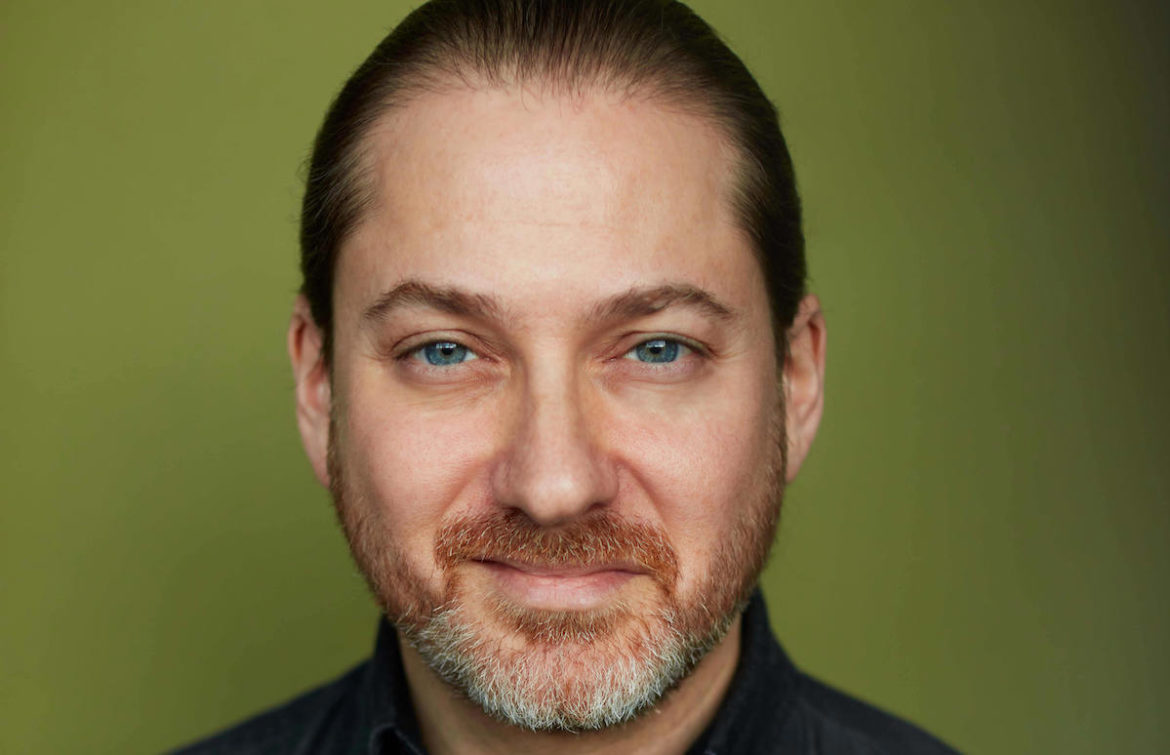 |
|
|---|
Eric Shaw is a drummer and Vice President, Creative Marketing at Sony Music Publishing where he spends his days pitching songs by the likes of The Beatles and Queen for advertising opportunities. Here, Shaw discusses the intricacies of his job and the most interesting developments across the music publishing sector.
How did you get into the music industry?
In the early 2000s I was kicking around NYC as a drummer in several bands just trying to figure out how to survive as a musician and working a variety of random jobs to make rent (bartending, office temp work, production assistant on mob funded vanity projects, etc.). At some point I was introduced by a roommate to a music producer from a big New York music house called JSM, which turned me on to a fascinating side of the music industry I had never considered but that seemed pretty fun and potentially lucrative – music in advertising. So, I took an internship there for $10 a day, three days a week, doing everything from setting up sessions to handling clients to the daily procurement of vodka and cigarette rations; but mostly I was desperately waiting for someone to get fired so I could get a job.
While there I met a lawyer (Lloyd Simon) who had rented some extra office space upstairs from the studio and who ran what was then a fairly novel business of providing music clearance services for advertising agencies looking to use licensed music in their commercials. Lloyd had realized that many of his clients came to him seeking songs that they couldn’t afford, and rather than lose the business he asked if I might be able to provide alternative suggestions that both worked creatively and were within budget.
As a pretty big music nerd who had worked in record stores all throughout high school and college, this seemed like a natural fit (although I truly hadn’t even known that recommending songs to picture, a.k.a. music supervision, was an actual occupation until that point). He showed me the ropes of licensing and clearance, I brought creative music supervision services to the business, and we were off and running. A few successful years later I switched sides to go to EMI Music Publishing to represent their catalog for sync placements, and many ownership changes later I am still there, although now it’s Sony Music Publishing.
What does your current job entail?
On the surface my job is to pitch and license songs from the Sony catalog for use in advertising, and that is primarily what I do. I am part of a team that is the conduit through which people can access the greatest music catalog in the history of the world (we have The Beatles, Queen, and Motown, just to start), so I send out custom playlists in response to creative briefs, build connections with music producers and supervisors, and negotiate deals all day long.
“What many people on the brand and agency side may not realize however, is how much internal relationship building goes on.”
What many people on the brand and agency side may not realize however, is how much internal relationship building goes on. Every songwriter in the catalog, current or legacy, wants to know that they are being well represented by their publisher for sync opportunities, so we spend a lot of time in discussions with our A&R teams, artists’ managers, and writers’ estates to stay on top of both what is coming up and what we have in the catalog. We are very serious about our responsibilities to protect and nurture the legacies of the songwriters we represent, facilitate fresh opportunities to help break new talent, and ultimately, to get all of our songwriters paid well for the use of their songs.
What does a typical day look like for you?
I will usually handle two or three creative briefs over the course of the day, pulling together a selection of songs that fit the needs of whatever the client is looking for (new and cool songs with attitude; iconic songs of togetherness; 90s hip-hop, whatever). I will also answer many, many emails by way of issuing ballpark quotes, negotiating deal points, and finalizing terms for licensing. There are usually a few phone calls and/or zoom meetings thrown in the mix, and when we were still in the office, there were also regular client lunches and dinners, after work showcases, and speaking engagements as well. I am definitely looking forward to getting back to more in person schmoozing again. Ain’t no dinner like an expense account dinner (that is a joke, if our CFO is reading this).
What do you think are the most interesting developments in your area of the industry?
The massive explosion in catalog sales has been quite a phenomenon in recent years, with catalogs selling for higher multiples than ever in history. There is a great reshuffling of the deck happening when it comes to the representation of these iconic song catalogs, and it will be interesting to see who is best able to steward these songs into the future by keeping them relevant for the next generation. Capitalizing on new licensing and streaming opportunities and maintaining enough revenue to have these large payouts make financial sense is going to be more important than ever in publishing.
“Capitalizing on new licensing and streaming opportunities and maintaining enough revenue to have these large payouts make financial sense is going to be more important than ever in publishing.”
Plus we have TikTok and all of the new social apps on the horizon looking to utilize music in new and creative ways. Creating the framework for licensing to new media is an ongoing challenge but needs to be done right up front or songwriters will be suffering in the future by being horribly underpaid for their work (cough, streaming royalties, cough, cough). Once a precedent has been set it can be hard to correct.
What’s been the most unexpected thing about the job?
That my personal musical taste doesn’t matter. That is not to say that you don’t need to have great ears to do this job, you definitely need exquisite music supervisory abilities in order to pitch effectively, but my personal ideas about what should or shouldn’t work for a project are ultimately irrelevant – only the clients’ choice counts. My job is to connect the dots by getting the right song in the right ears at the right time and for the right price. Whether I think what they land on is an inspired creative decision or as boring as dry toast, so long as I am getting a win for my songwriters, they approve of the use, and it doesn’t denigrate the copyright in any way, it’s all good.
What’s the coolest project you’ve ever worked on?
Oh man, there have been so many… One that will always stick out for a number of reasons was when Chase Bank licensed “Instant Karma” by John Lennon for a spot back in 2009. Suffice it to say, it was a very big money deal, but what made it particularly memorable was the producer at the agency had solicited cover versions from a variety of artists which I then had to send to Yoko Ono for approval. After some back and forth (and one particularly cryptic email from her stating only “Too much drums”), everyone settled on a version by Peter Murphy of Bauhaus. The godfather of goth is not the first person to come to mind when you think about the lyrics “and we all shine on…”, but his cover was amazing and everyone was psyched with how it turned out.
I also love working on new original music for sync. We host songwriter camps throughout the year where I get to put on more of an Executive Producer hat and help our amazingly talented songwriters focus their craft on the creation of legitimate songs that match up to the needs of our music supervision clients’ most cited creative briefs. The program has been pretty damned successful, and the quality of songs that come out of these sessions are remarkable. One song I worked on has landed multiple, major commercial and TV sync campaigns and even became a viral hit for South Korean line dancers (it’s a thing).
What’s the best piece of advice you’ve ever gotten?
Stop at yes. One of the simplest and yet hardest things to do when negotiating is simply shutting the hell up when you get to a yes, even if you still have five other arguments bouncing around your brain as to why you are right. Let it go. You have the answer you seek, and the more arguments you lay out there the more opportunities you give the other person to find fault.
The other thing would be to stay curious about everyone you meet. Just talking to people and expressing your genuine curiosity in what they do and how they do it can open so many doors that you didn’t even know were there in the first place.
What’s on your playlist at the moment?
My tastes run the gamut (kind of an occupational necessity), but lately I have been listening to a fair amount of dub reggae, early 70s fusion, trip hop, and 60s female vocal jazz. I basically want music to just chillax with. I also recently pulled together a playlist of country funk for a DJ night that was a lot of fun to dig into. Those Nashville cats could throw down in the early 70s.
Do you have any predictions or hopes for the future of the industry?
I hope that in time the streaming royalty pie gets more equitably distributed for songwriters. As new technologies further integrate music on demand into every facet of our lives I think there will be a larger pool of revenue for music than we have ever seen. It just needs to be shared properly.
“As new technologies further integrate music on demand into every facet of our lives I think there will be a larger pool of revenue for music than we have ever seen. It just needs to be shared properly.”
I am also really curious from an anthropological point of view to see what music of previous generations will continue to resonate. We live in a time when a new generation is growing up with practically every song ever recorded available on demand, so which songs from prior decades will continue to make an impact on new listeners without the benefit of cultural context or personal nostalgia is really fascinating for me. Whatever alchemy (or algorithm) is at play in determining what music will continue to matter, I’m just excited that I get to contribute in my way to keeping classic songs alive.
Enjoyed this interview? Why not check out others in the series:
- Joel Speaks to His Neighbors: Meg Berry, Singer-Songwriter, Producer
- Joel Speaks to His Neighbours: Spek, PopArabia & Reservoir
- Joel Speaks to His Neighbors: Sean Lorre, Musicologist, Educator and Historian
